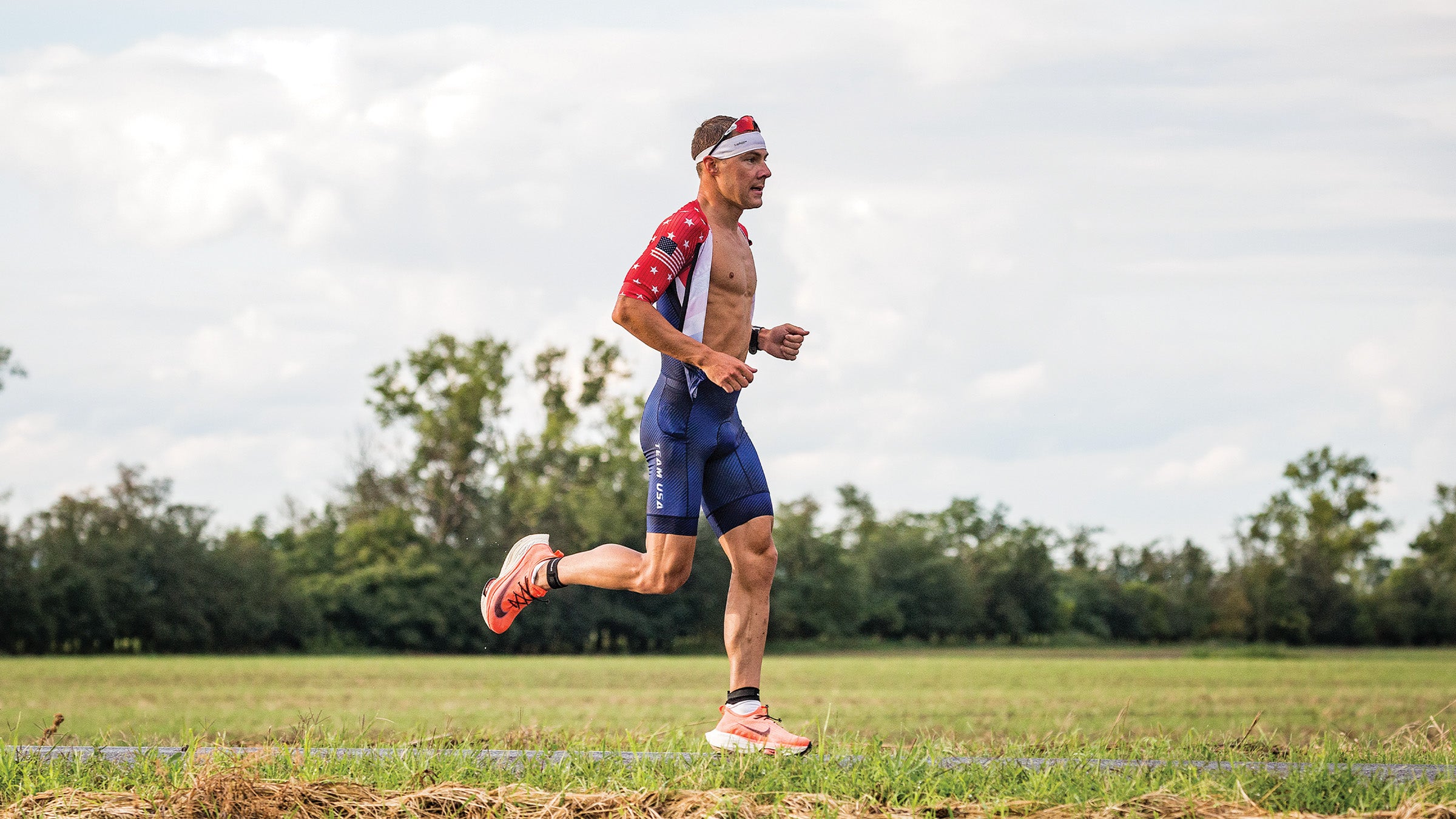Remember the Name: Collin Chartier

(Photo: Professional Triathlon Organization)
2021 was the year of big names and big breakthroughs: Flora Duffy’s dominance at the Olympics, Lucy Charles-Barclay’s 70.3 world championship win, Kristian Blummenfelt’s record-breaking Ironman performance. In the shadow of those blockbuster events, up-and-comer Collin Chartier quietly assembled one of the most well-rounded years of racing by any triathlete, stringing together podium finishes and wins around the world: third place at Ironman 70.3 Boulder, second place finishes at Challenge Pegura Mallorca and 70.3 Des Moines, a last-minute sub-in at the high-profile Collins Cup, and a snappy 3:28.52 victory at Challenge Salou. But Chartier doesn’t see podiums, only lessons learned.
“Personally, I wouldn’t call the 2021 season amazing. It was a good year, but truthfully I was able to fully express my current fitness in just two races: Challenge Salou and Challenge Mallorca,” said the 28-year-old. “In the other five middle-distance events I competed in, I underperformed. My breakthrough season is going to be 2022. Be on the lookout.”
Never make the same mistake…again
Chartier is all about evolution. His approach to triathlon is thoughtful and methodical, with a strong emphasis on never making the same mistake twice. To some, his 2021 success seemed to manifest overnight, but it’s been years in the making. Since his first triathlon in 2009, when 14-year-old Chartier finished top-five overall on a borrowed road bike with platform pedals, the trajectory has been upward. His original intention was to become an NCAA champion in swimming, but a recruiting call from Marymount University (the nation’s first varsity-funded triathlon program) proved too compelling to resist.
At Marymount, Chartier wasn’t a standout athlete by any means. Despite putting in the hard work, he didn’t always see the outcomes he wanted, which was immensely frustrating. “I had quit triathlon on many occasions, and spent many seasons not fully committed either,” he said. Eventually he had to make a decision: go all-in or be done. He chose all-in. “The pursuit of excellence is what keeps me coming back. I may never achieve excellence, but the quest in and of itself is worth it.”
He spent the next several years learning and growing, first in the ITU ranks and then as a middle-distance athlete. Today, the quest is paying off in the form of podiums, wins, and career-best performances. While others are surprised by his recent success, he isn’t: “There are no surprises in this sport. You either have done the work or you haven’t.”
From tri to SkiMo (and back to tri)
He’s taken the same intense approach to his off-season pursuit of ski mountaineering (commonly called SkiMo)—a sport that combines climbing or skinning up difficult mountain terrain, then skiing down as quickly as possible. After taking up the hobby in 2020, when the future of racing was uncertain during the COVID pandemic, Chartier quickly worked his way up the ranks, racing at the highest level of the sport in only three months before returning his focus to triathlon. Ski mountaineering was recently announced as an Olympic sport for 2026, and Chartier has yet to decide if he’ll try to make the U.S. team. One thing’s for certain, however: This year, he’s all-in on triathlon.
“I still haven’t found success in this sport. My best days are still ahead of me,” he said. “The day I am not on the learning curve is the day I will be finished with triathlon. But I hope old age gets me to retire before this happens.”